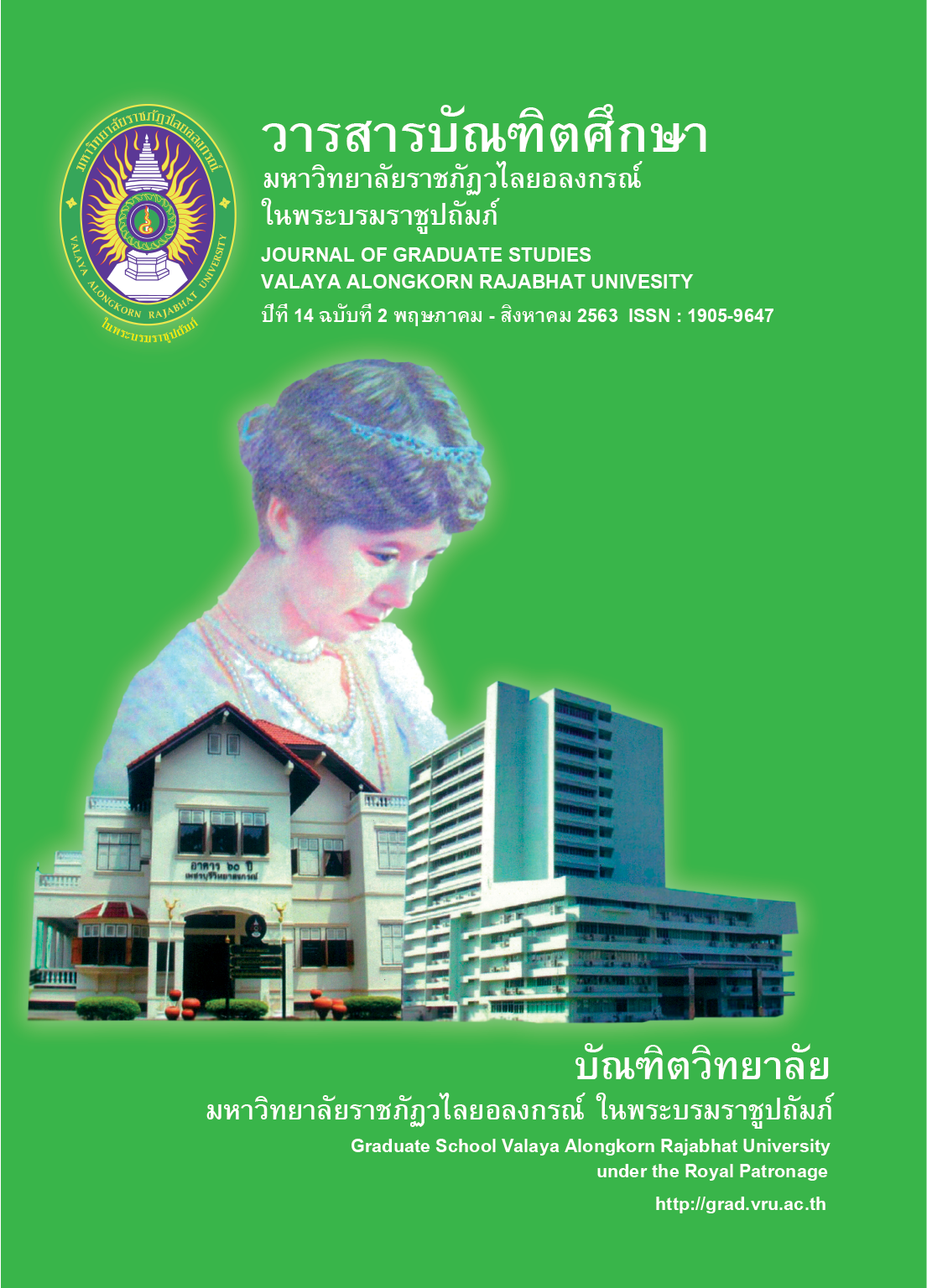THE LESSON LEARNED FOR LIFELONG LEARNING IN HUMAN
Main Article Content
Abstract
Lesson learned for lifelong learning in human is an academic article that presents another aspect of the knowledge management methodology and under the new main definition of existentialism philosophy believes that human nature and the social environment are not fixed and can determine their own life. Lessons learned can therefore be carried out according to human needs in a systematic way. Can synthesize phenomena that occur in the past, present and future where man is the center of learning is the result of human interpretation giving meaning that responds to their own experiences to improve the quality of life on the complexities of today's society.
Article Details

This work is licensed under a Creative Commons Attribution-NonCommercial-NoDerivatives 4.0 International License.
บทความทุกเรื่องได้รับการตรวจความถูกต้องทางวิชาการโดยผู้ทรงคุณวุฒิ ทรรศนะและข้อคิดเห็นในบทความ Journal of Global of Perspectives in Humanities and Social Sciences (J-GPHSS) มิใช่เป็นทรรศนะและความคิดของผู้จัดทำจึงมิใช่ความรับผิดชอบของบัณฑิตวิทยาลัย มหาวิทยาลัยราชภัฏวไลยอลงกรณ์ ในพระบรมราชูปถัมภ์ กองบรรณาธิการไม่สงวนสิทธิ์การคัดลอก แต่ให้อ้างอิงแหล่งที่มา
References
Ausuble, D. P. (1968). Education Psychology: A cognitive view. New York: Holt, Rinehart and Winston.
Bruner, J. S. (1963). The process of education. New York: Alfred a. Knof and Random house.
Klausmeier, H. J. (1985). Educational Psychology. 5th ed.New York: Harper and Row.
Mayer, R. E. (1996). Designing instruction for constructivist learning. In C. M. Reigeluth (Ed.), Instructional design theories and models: A new paradigm of instructional theory (pp. 141-159). Mahwah, NJ: Lawrence Erlbaum Associates.
Ngamwithayapong, A. (2006). krabūankān rīanrū nai sangkhom Thai læ kān plīanplǣng: čhāk yuk chumchon thưng yuk phatthanā khwām thansamai [Learning process in Thai society and change: From the community to Modern development]. Bangkok: College of Social Management.
Phanich, W. (2015). kān rīanrū phư̄a kān plīanplǣng Trans formative Learning [Learning for change. Trans formative Learning]. Bangkok: SR Printing Mass Products Co., Ltd.
Plainoy, S. (2006). botrīan khō̜ng kān thō̜t botrīan nai kānčhatkān khwāmrū phāk prachā sangkhom [Lessons of transcription in civil society knowledge management]. The department monitors internal evaluation and synthesizes knowledge Research and development of livable local public life project Faculty of Social Sciences and Humanities Mahidol University.
Ratthanathongkam, S. (2013). čhittawitthayā kān rīan kānsō̜n witthayāsāt [Psychology of teaching and science]. Teaching Document 475-788 Physical Therapy Teaching the first semester of the academic year 2013.
Shukla. (1997). Completing Through Knowledge: Building a Learning Organization. London, Response Books.
Sudthirad, C. (2016). pǣtsip nawattakam kānčhatkān rīanrū thī nēn phū rīan pen samkhan [80 Innovative learning management that is student-centered]. Bangkok: Danex Inter Corporation.
Tisdell, E. & Tolliver, D. (2009). Transformative approaches to culturally responsive teaching: Engaging the cultural imagination. In J. Mezirow, & E. Taylor (Eds.), Transformative learning in action: A handbook of practice (89-99). San Francisco: Jossey-Bass.
Wasee, P. (2005). kānčhatkān khwāmrū : krabūankān plotplō̜i manut sū sakkayaphāp sērīphāp læ khwām suk [Knowledge management: the process of releasing humans to potential, freedom and happiness]. Bangkok: Institute for Knowledge Management for Society (AUG).
Wiriyaphanic, M. (2013). rūam nǣokhit lāk mummō̜ng ʻongkō̜n hǣng kān rīanrū læ kānčhatkān khwāmrū phāk wichākān [Combining multi-perspective concepts Learning Organization and Knowledge Management Academic Department]. Bangkok: Song Siam Publishing.


